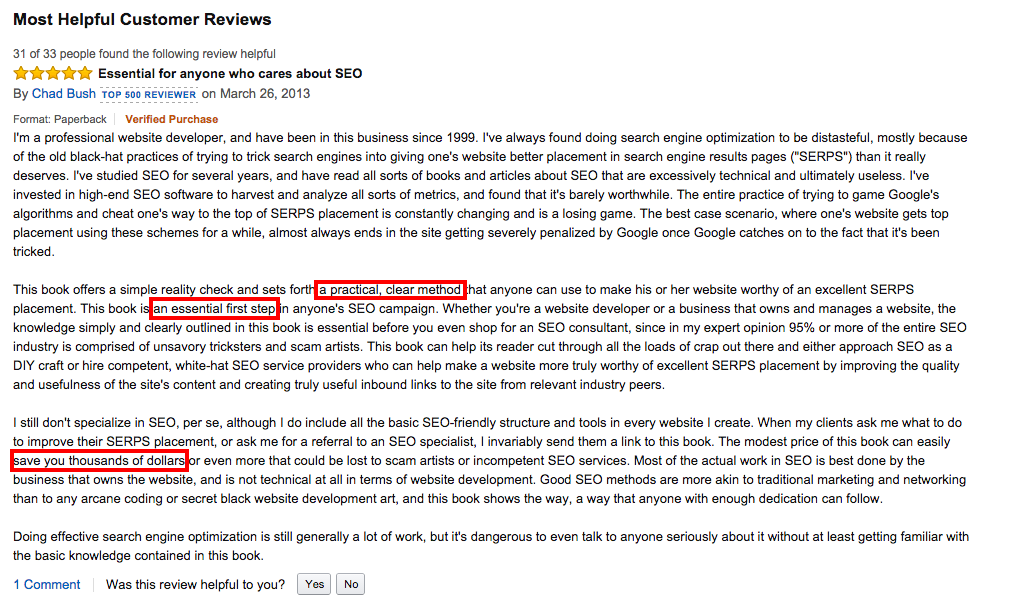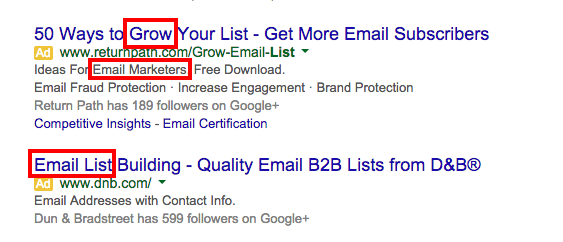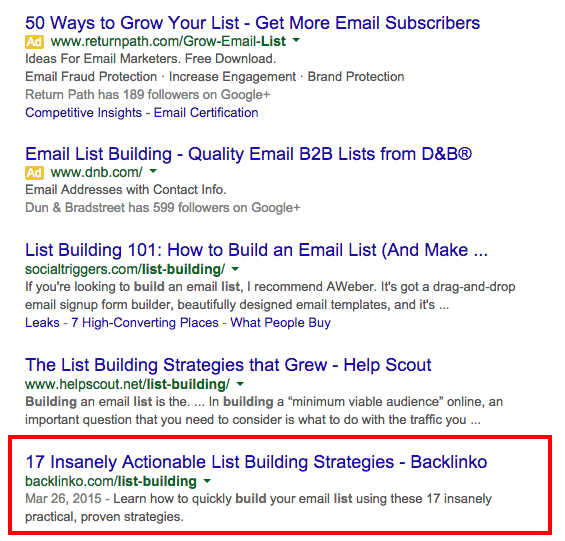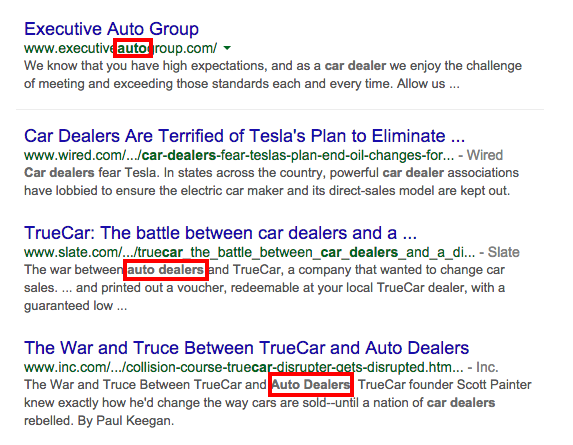Topics:
Content MarketingSubscribe now and get the latest podcast releases delivered straight to your inbox.
How to Steal Your Marketing Message from Your Audience

Apr 15, 2015

 I get it. You’re stressed, under a time crunch, and struggling with writer’s block. Why can’t someone else make like Nike and just do it, right?
I get it. You’re stressed, under a time crunch, and struggling with writer’s block. Why can’t someone else make like Nike and just do it, right?
Here’s a little plot twist for you: someone else already did.
The next time you’re having trouble finding the right words to convey the value of your product or service, don’t just pick your customers’ brain, steal the words right out of their mouths (and the same goes for your competitors.)
Ok, maybe that sounded a bit aggressive, but the idea is completely well-intentioned.
Speak to your audience in their own language. Put your marketing messages in words they’re already using and that they will immediately relate to on an emotional level.
Here are three unexpected methods from some of the industry’s biggest SEO and copywriting experts to help you get started.
1. Review Mining
For your marketing message to truly connect with your audience, you need to speak in words that will resonate with them and make an emotional impact.
Instead of trying to read their minds and guess what will push the right buttons, steal a page out of Joanna Wiebe’s playbook and go “Review Mining.”
“Review Mining”, simply put, is using existing customer reviews from places like Amazon, Yelp, Facebook, the iTunes App Store, or even your own testimonials, to find memorable words and phrases that people are using to describe their experiences.
Once in hand, use these phrases in your marketing messages to craft a finished product that speaks directly to your audience.
Pretty smart, huh?
If you sell a product, look at the reviews of your competitor’s alternative. If you sell a service, mine the reviews of related products and books for your next piece of messaging gold.
For example, say you sell SEO Consulting Services and looked into the most popular SEO handbooks and guides on Amazon.

This popular (or as Amazon says, “Most Helpful”) Customer Review provides you with vivid phrases that can be easily adapted into your copy or marketing messages like:
- “a practical, clear method”
- “an essential first step”
- “save you thousands of dollars”
These quotes are not only descriptive, they are real. They come directly from your buyer’s lips and speak directly to their pain points in a voice that they will respond to. (31 out of 33 people did find it helpful, after all.)
As you’re sifting through relevant reviews for your product or service in the future, make sure to keep an eye out for the following information to inspire your copy:
- How the customer describes the product
- Specific adjectives, similes, metaphors, etc.
- What they love about it
- What they hate about it
- Concerns or issues they had
- Why they decided to buy it
- Real-life anecdotes
2. Take a Cue from Google AdWords
Your buyer personas aren’t the only ones with messaging ripe for the picking.
Strategic competitors can offer valuable insight into the words and phrases you should capitalize on as well -- especially Google AdWords.
The team at Google AdWords makes their bread and butter getting customers clicks and conversions, so everything they put out has been thoroughly researched, tested, and is pretty much guaranteed to garner results.
Use their research to help your copy hit the mark and improve search rank like Brian Dean did for his keyword “Link Building.”
To improve the rank of one of his blog articles, Dean searched “Link Building” on Google then took note of the secondary keywords that came up in the Google Ads at the top of the page (i.e. Grow, Build, Email Marketers, Email List, etc.)

After compiling his list of keywords, he then strategically plugged them into the meta-description of his blog article and quickly found it sitting as the #3 search result.

These words have already been proven by Google to generate clicks.
Stealing them as springboard for your copywriting is an efficient and effective way to generate copy that will appeal to your audience and even make you rank higher so give it a whirl.
But as always, take a thorough look at your analytics to make sure that the keywords are actually generating the clicks and conversions you’re looking for.
3. Find and Use LSI Keywords
As Dean describes LSI, or Latent Semantic Indexing, keywords are “synonyms and closely-related words” that help Google further understand what your copy is about.
If I searched “car dealer”, for example, the additional words that Google bolds as you scroll through the results (i.e. Auto, auto dealers, dealership) would be LSI keywords.

Why should you care? Though seemingly small, these words help paint a more detailed picture for your reader and give additional context to Google to make sure that it gets your copy in front of the right people at the right time.
And an even bigger benefit in my book: LSI keywords provide you with a bit more freedom in your copywriting.
Instead of being married to a single focus keyword and sounding robotic, LSI keywords give you the leeway to branch out to more natural sounding synonyms, making your messaging more engaging and reader-friendly.


Order Your Copy of Marcus Sheridan's New Book — Endless Customers!